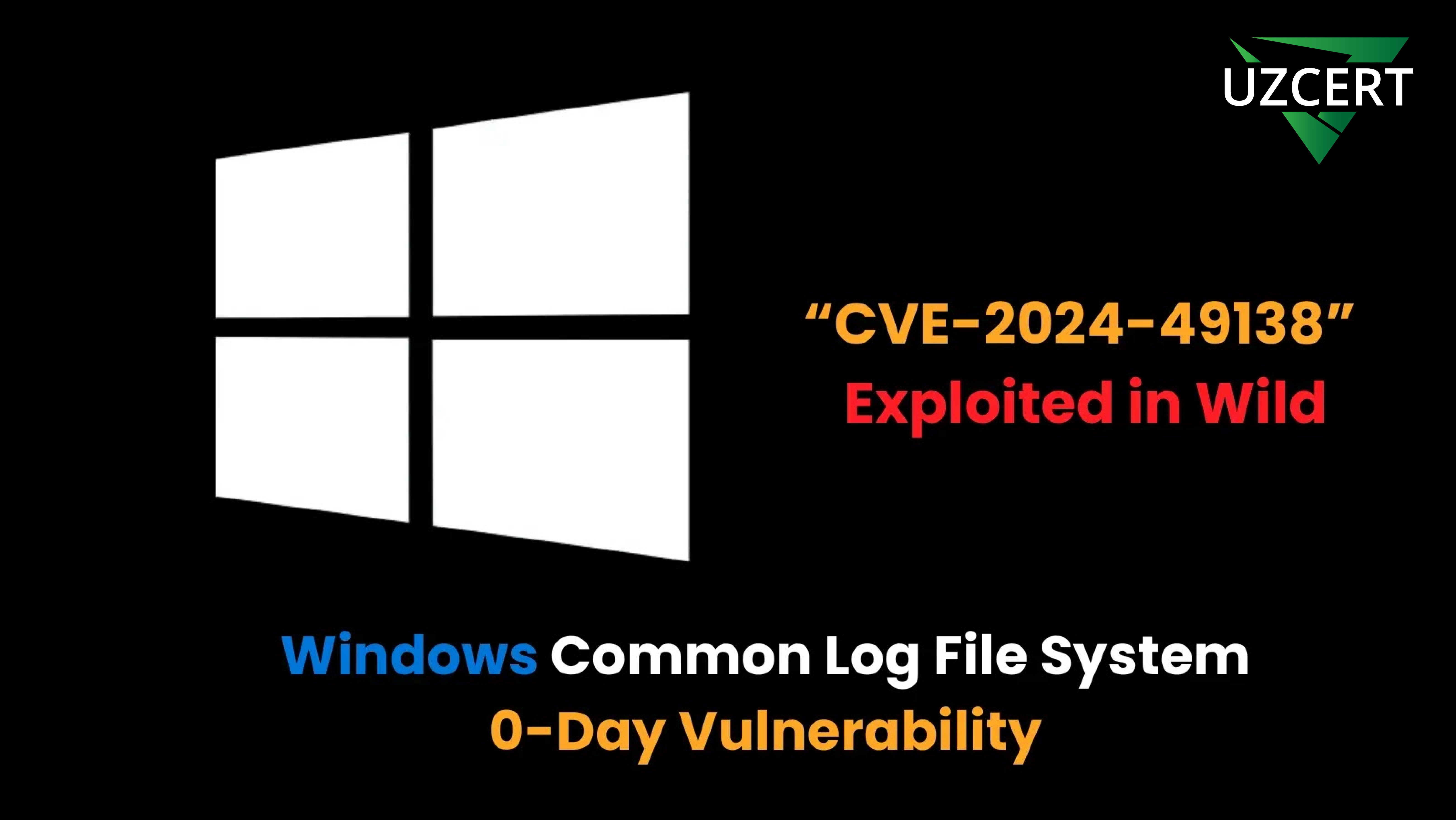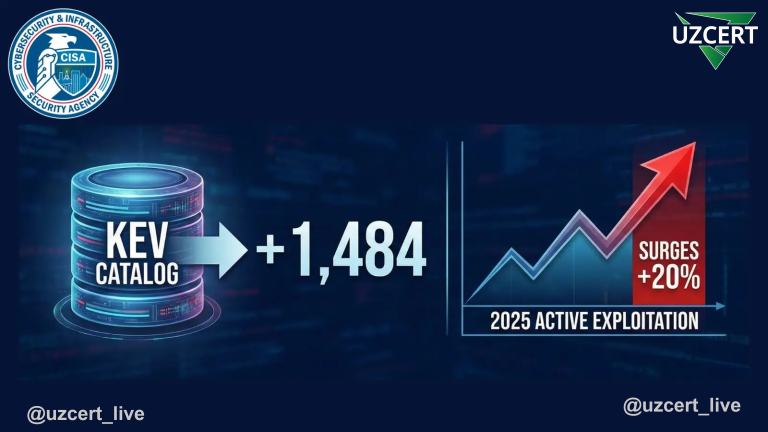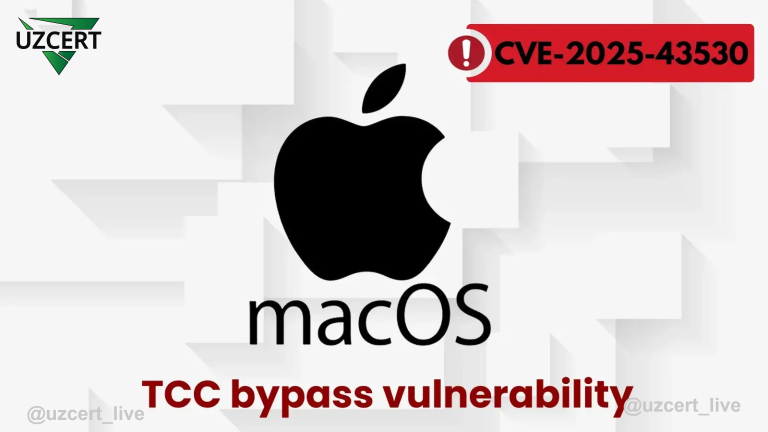
Critical Vulnerability in Windows CLFS Driver: CVE-2024-49138
A newly identified critical vulnerability in the Windows Common Log File System (CLFS) driver — CVE-2024-49138 — poses a serious threat, having already been exploited in cyberattacks. This issue represents a significant risk to Windows systems.
Overview of the Vulnerability
Microsoft has classified CVE-2024-49138 as an Elevation of Privilege vulnerability. Successful exploitation of this vulnerability allows an attacker to gain SYSTEM-level privileges, providing full control over the system. This could result in data theft, system compromise, and additional attacks across the network.
Key Technical Details:
- Type of Vulnerability: Heap-based buffer overflow (CWE-122).
- Severity Level: Critical.
- Common Vulnerability Scoring System (CVSS):
- Base Score: 7.8.
- Temporal Score: 6.8.
- Attack Vector: Local.
- Complexity: Low.
- Required Privileges: Low.
- User Interaction: None.
- Impact: High impact on confidentiality, integrity, and availability.
This vulnerability enables attackers to execute arbitrary code through local access, escalating user privileges to SYSTEM level. The issue poses a serious threat to Windows systems.
Practical Exploitation
The U.S. Cybersecurity and Infrastructure Security Agency (CISA) has added CVE-2024-49138 to its Known Exploited Vulnerabilities Catalog, emphasizing the need for immediate resolution. Exploitation requires limited local access to the system. Despite the low complexity of the attack, it can result in high-impact outcomes.
Discovery of the Vulnerability
This vulnerability was identified by CrowdStrike’s Advanced Research Team and officially acknowledged by Microsoft. The discovery highlights the importance of collaboration between the cybersecurity community and software providers.
Impact on Systems
Successful exploitation of CVE-2024-49138 can lead to:
- Obtaining SYSTEM-level privileges: This grants full control over the system.
- Compromise of system security: Unauthorized access to and manipulation of sensitive data.
- Facilitation of additional attacks: Attackers can gain access to other systems within the organization’s network.
Given the active threats, this vulnerability requires immediate attention.
Mitigation and Recommendations
Microsoft has released an official patch for CVE-2024-49138 as part of the December 2024 Patch Tuesday updates. The following actions are recommended:
- Install the latest security updates: Immediately apply all updates that include fixes for CVE-2024-49138.
- Review system configurations: Ensure system settings align with Microsoft’s best security practices.
- Monitor attack indicators: Watch for unusual activity, particularly attempts at privilege escalation. Use advanced monitoring tools to detect and respond to suspicious behavior.
Broader Implications
CVE-2024-49138 underscores the persistent threat of zero-day vulnerabilities. Systems running outdated versions of the Windows Common Log File System driver are particularly at risk. The low complexity of exploiting this vulnerability means attackers can target a wide range of devices.
Call to Action
Addressing this critical vulnerability requires prioritizing system updates. Timely application of patches significantly reduces the risks associated with CVE-2024-49138.
The discovery and exploitation of CVE-2024-49138 emphasize the importance of implementing robust security measures to protect systems. Collaboration between the cybersecurity community and software vendors plays a crucial role in preventing emerging threats. Vigilance and timely updates are essential steps to safeguard systems and data.
For more detailed information, refer to Microsoft’s official security advisories and apply all recommended updates.



